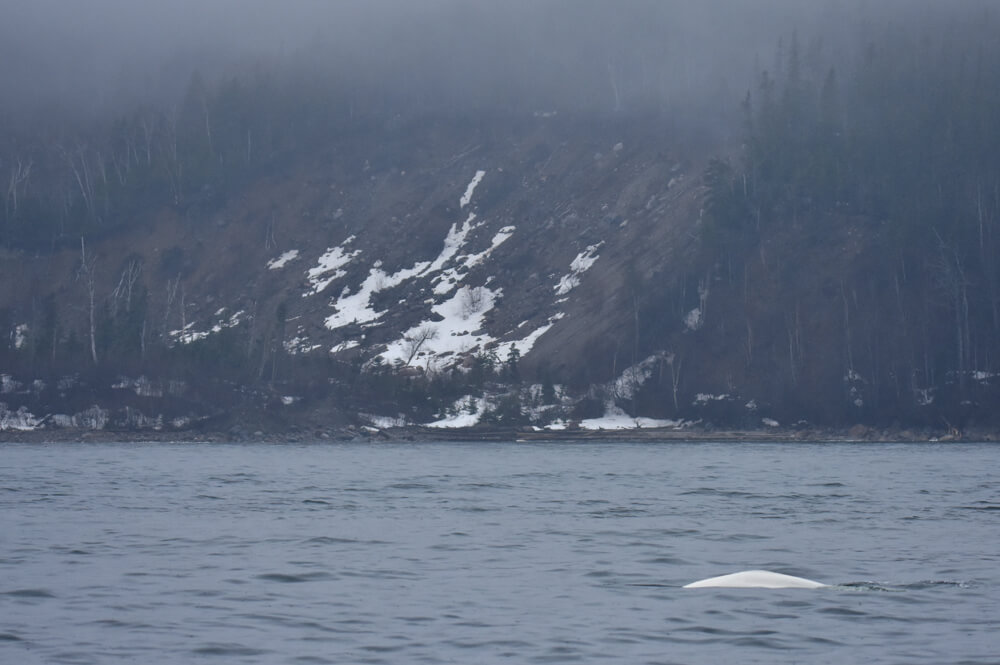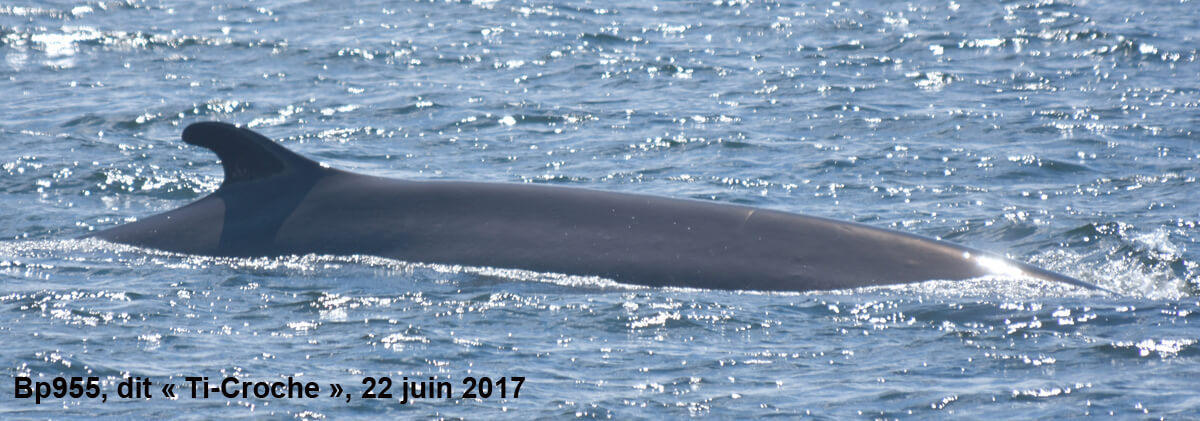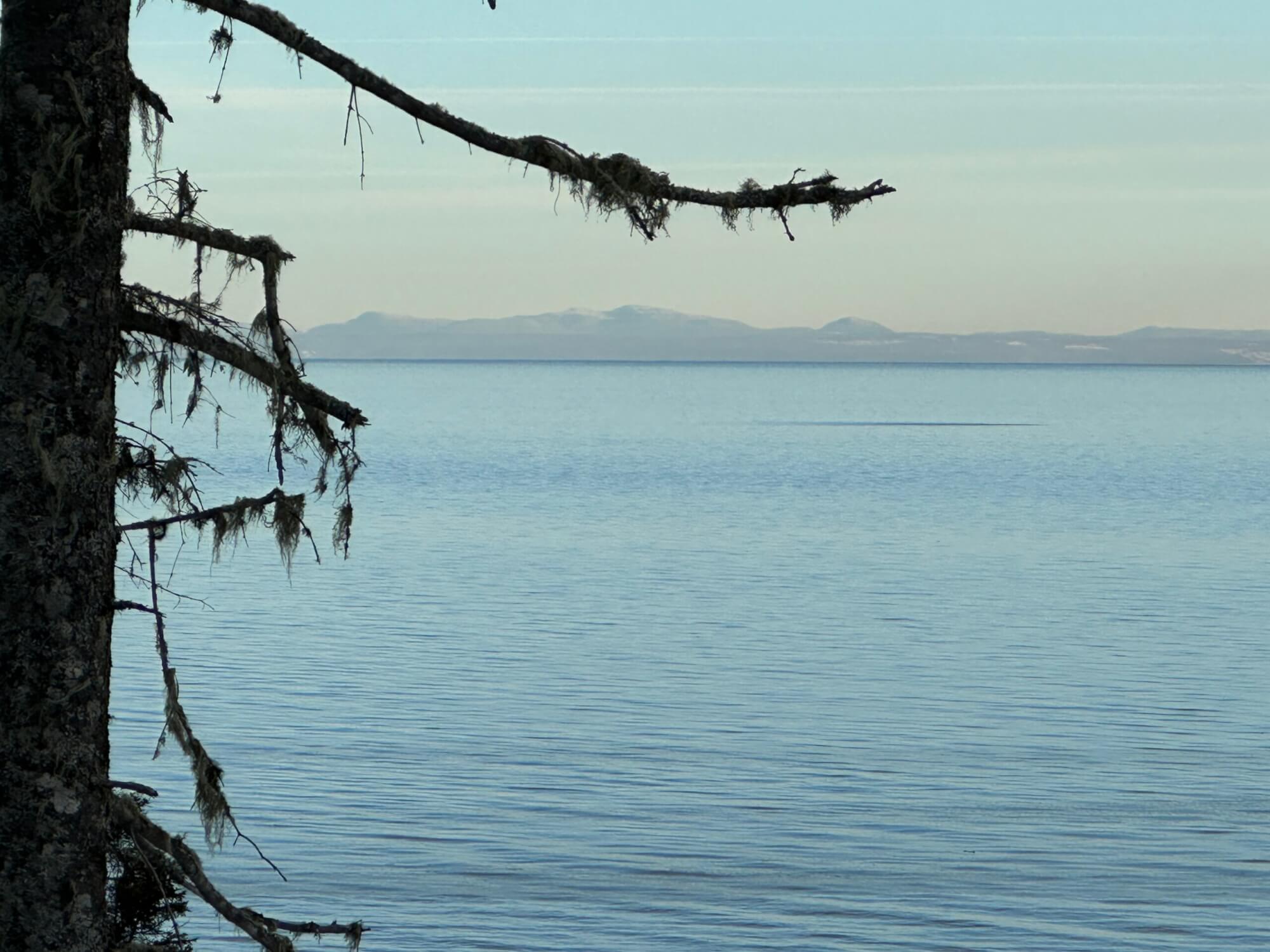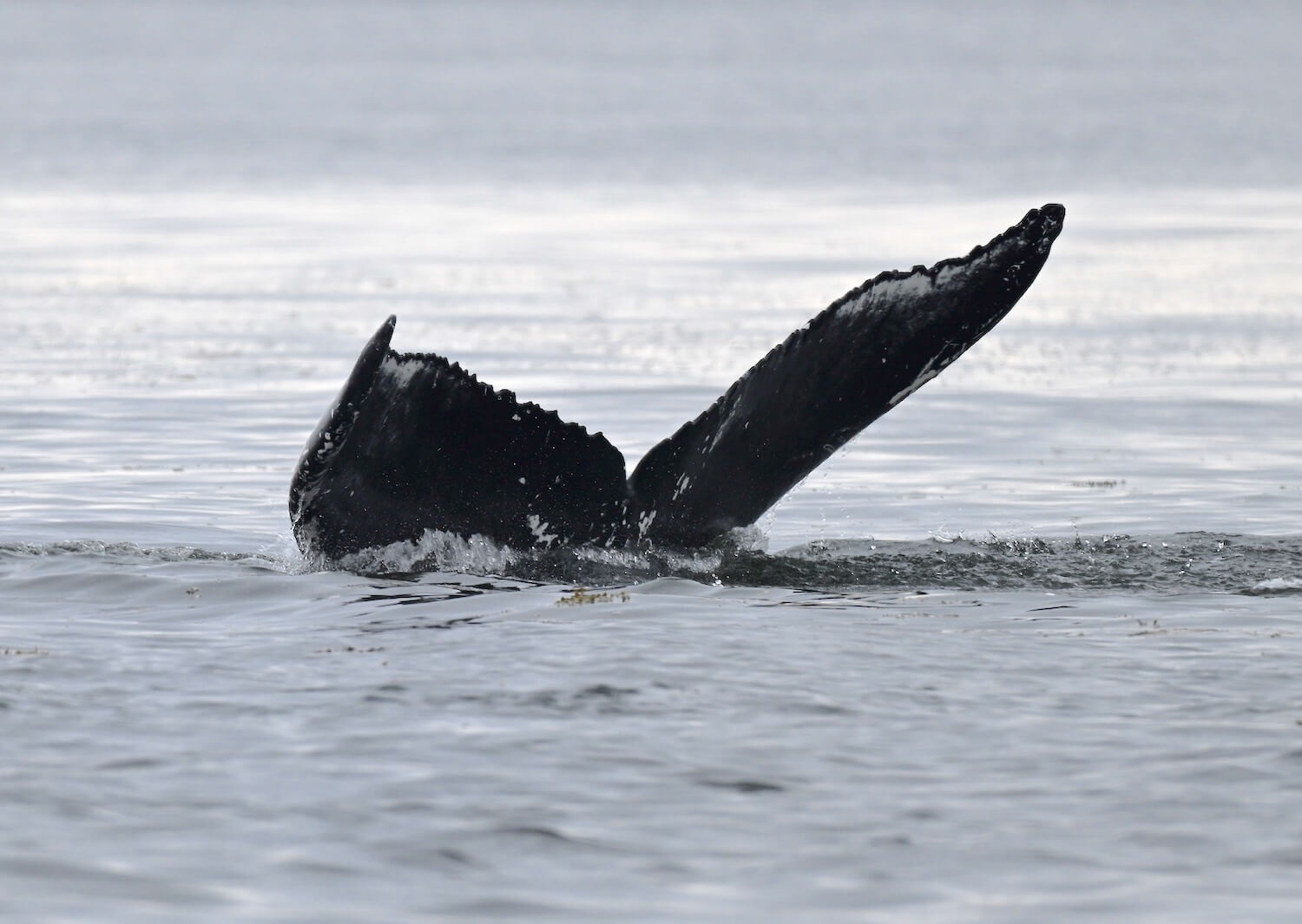Across the St. Lawrence, it was the tranquility of sightings that marked the past week. Many observers reported seeing nothing in particular, apart from the usual beauty of the river, of course. Nevertheless, several belugas, seals and a few large whales passed by.
As the days get shorter and shorter, the sight of glistening, almost dazzling whitebacks is something to marvel at! A few belugas were swimming in the mouth of the Saguenay on a sunny midday, and could be seen from the shore near Tadoussac. The cool air temperature even made it possible to admire their breathing on the surface of the water. “You could really see their little breaths,” explains one marine mammal enthusiast.
From Saint-Siméon, a few belugas were also spotted, but it was the passage of a humpback whale that surprised a resident a few times! The whale came to breathe, with its characteristic balloon-like blow, before diving into the river, revealing its tail fin.
It’s also said that the blow of a great whale was spotted in front of Franquelin. “Perhaps a blue whale,” speculated the local resident, who has a privileged view of the river from his home. Another minke whale sighting: the fin whale Ti-Croche was reportedly seen off Les Bergeronnes. Its dorsal fin is strongly arched backwards and resembles a hook. However, it was the resemblance of Bp955’s dorsal fin to that of the late Captain Hook that earned it the nickname “Ti-Croche”.
Seals off the coast
In the last few days, a North Shore resident caught the eye of some pinnipeds. You had to be careful to see them, however, as they were far offshore. “Between Godbout and Franquelin, I observed darker areas in the distance… A little later, between Baie-Comeau and Franquelin, I was able to observe the same phenomenon up close. Through binoculars, it was possible to see seals moving westwards, sticking their heads out of the water as they moved forward. The mass would disappear for a moment and then start up again, fascinating to see such great movements. Too far to officially determine the species, but the odds are in favor of harp seals!
Indeed, this gregarious species is often observed in large groups and frequents the St. Lawrence in winter. Unlike most marine mammals that visit the St. Lawrence in summer, harp seals reside in the Gulf and Estuary in winter. It uses the ice pack for whelping, moulting and reproduction. More sightings of this species are sure to come!
Thanks to all our collaborators!
Special thanks go out to all our observers who share their love for marine mammals with us! Your encounters with cetaceans and pinnipeds are always a pleasure to read and discover.
On the water or from shore, it is your eyes that give life to this column.
Odélie Brouillette
Laetitia Desbordes
Louis-Pierre Ducharme-Tremblay
Jade-Audrey Lavergne
Diane Ostiguy
Renaud Pintiaux
Pascal Pitre
Andréanne Sylvain
Marielle Vanasse
And all those we left out!
Additionally, we would like to acknowledge the following teams for also sharing their sightings:
Mingan Island Cetacean Study (MICS), Marine Mammal Observation Network (ROMM),
Quebec Marine Mammal Emergency Response Network: Status Report (QMMERN),
Group for Research and Education on Marine Mammals (GREMM)
Would you also like to share your observations?
Have you seen any marine mammals in the St. Lawrence? Whether it’s a spout offshore or just a couple of seals, drop us a line and send your photos to [email protected]!







